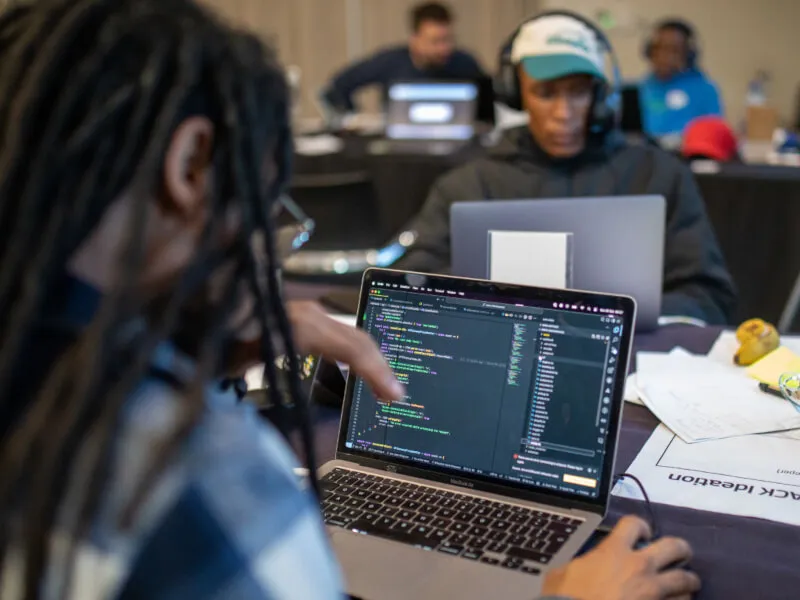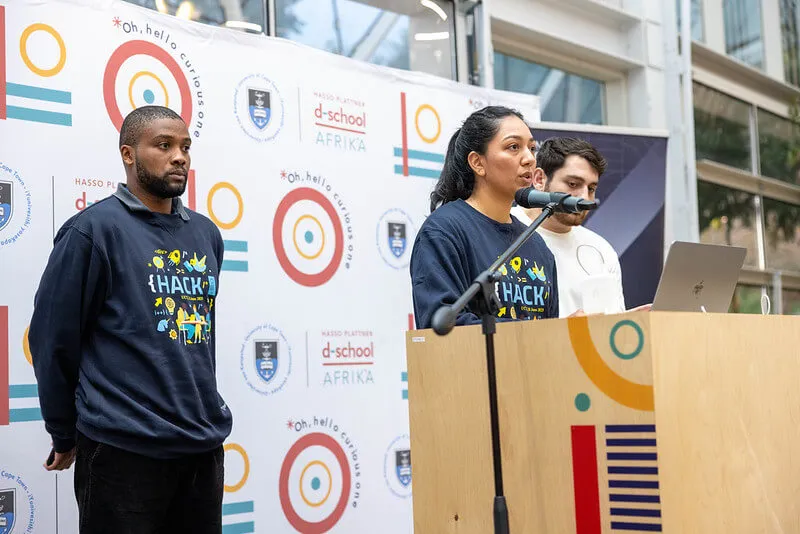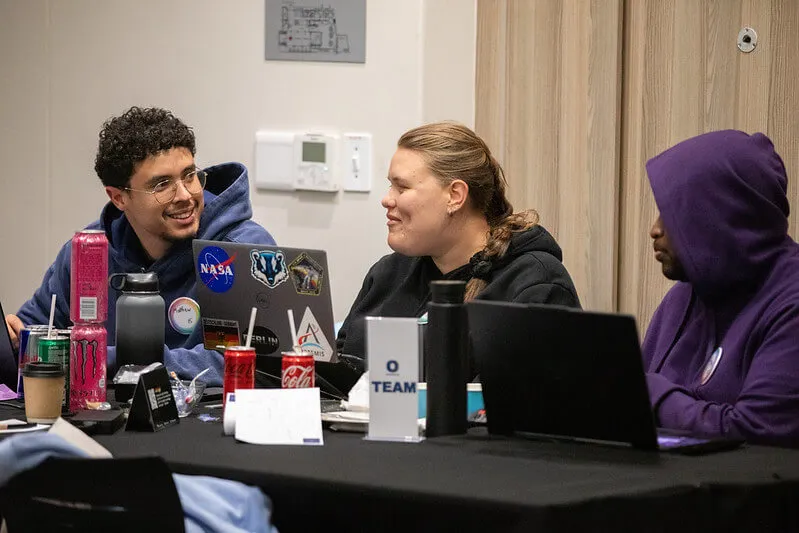
Why Higher Education Institutions worldwide should embrace Hackathons as catalysts for academic innovation
In a rapidly evolving financial landscape, higher education institutions are uniquely positioned to empower students with practical tools to tackle real-world challenges. Hackathons—short, intensive problem-solving sprints—have emerged as powerful platforms to bridge academic learning with innovation, collaboration, and inclusive technology development.
One such example comes from South Africa, where the University of Cape Town’s (UCT) Financial Innovation Hub partnered with the Interledger Foundation to host a bootcamp and hackathon focused on Open Payments and the Interledger Protocol. Their approach holds lessons and opportunities for universities globally.
The value of Hackathons in Higher Education
Hackathons are more than just coding competitions—they’re experiential learning spaces that mirror the pressures and possibilities of the tech world. “We do well to equip students with theoretical knowledge,” says Dr. Allan Davids, Director of the Financial Innovation Hub. “But in FinTech, students must also understand practical interoperability challenges across payment systems. Open, inclusive technology like the Interledger Protocol offers a meaningful entry point.”
Through workshops and case studies—from countries like Jordan and Mexico—students around the world are being exposed to global payment challenges and collaborative technologies that address digital inclusion.
“In the FinTech environment, we need to give students exposure to what the actual practice is like. Hackathons give students the opportunity to create solutions for challenges that they identify in their lived realities.” — Dr Allan Davids, Director of the Financial Innovation Hub at UCT

Expert support
One element that distinguishes Interledger-supported hackathons from standard events is the active involvement of global experts. The Interledger Foundation doesn’t just provide funding—it embeds hands-on mentorship that spans technical advice, strategic validation, and real-time problem-solving. At the UCT event, students were guided by an international team of mentors with deep experience in open finance and protocol development.
This direct access to expert practitioners not only improved the feasibility and sophistication of student projects—it modelled collaboration across geographic and institutional lines. For universities seeking to elevate the quality of experiential learning, Interledger’s engagement signals a gold standard: co-creating alongside those driving open innovation forward.
Educating for real-world impact
Hackathon structures often bring together learners from diverse disciplines—computer science, economics, engineering, design—to develop solutions with social and financial relevance. At the UCT event, students created tools for microtransactions, digital financial access in rural areas, and crowdfunding for education. These ideas are universally resonant and demonstrate how hackathons foster entrepreneurial thinking, empathy, and technical agility.
Mentors and judges from both academia and industry have observed that students leave hackathons with an increased capacity for rapid iteration, teamwork, and strategic thinking—skills that are invaluable in today’s global workforce.
“Hackathons simulate what developers experience in startups… It’s good exposure for entry-level developers to apply what they’ve learned.” — Nathan Lie, software engineer at the Interledger Foundation

A global ecosystem for inclusion
The Interledger Foundation’s NextGen Higher Education Grant program helps universities host hackathons, offer bursaries, help coordinate class material and connect student solutions with global FinTech development.
“We are a fortunate beneficiary of the Interledger Foundation’s Higher Education Grant programme, which enables us to hold events such as this, and I want to encourage all universities to apply for this grant. It gives us, as universities, a great opportunity to provide bursaries and hold events such as these. Six individuals, two in the winning team and four in the team that came third, have bursaries from the Interledger Foundation. I am always super proud of the Hackathon teams. They have, in essence, built an app in a week – with people that they barely know. That’s really an achievement.”— Dr Allan Davids, Director of the Financial Innovation Hub at UCT
Universities worldwide are encouraged to consider hackathons not as one-off events, but as integral learning platforms that contribute to research, community development, and industry collaboration.
“You get to see new ideas and be surprised by the fact that something such as the Interledger Protocol and Open Payments could potentially be used in these left-field ways. As they use our software, they also point out to us what their needs and their community's needs are. So, for me, it’s not just about judging, it’s about trying to take conclusions away and building a better piece of software.” — Raul Ranete, software engineer at the Interledger Foundation
Elevating academic innovation globally
Hackathons offer a space where learning meets legacy. By integrating these events into their academic strategies, universities can:
- Foster interdisciplinary collaboration
- Support diversity and inclusion in tech development
- Position students for global careers in innovation
- Strengthen ties between education and societal impact
“When going to a job interview, students should mention that they participated in a hackathon. That shows an ability to learn quickly, to think quickly, and to work as a team.” - Timea Nagy, engineering manager and front-end developer at the Interledger Foundation
Get started
The Interledger Foundation’s Higher Education Grant is open to institutions worldwide. Apply now or contact the Foundation to learn more about how your university can support student-led innovation and participate in shaping the future of open, inclusive financial systems.